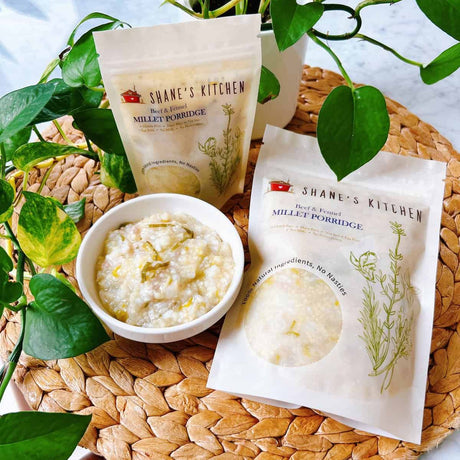- No products in the cart.
Is Frozen Food as Nutritious as Fresh Food?
05
Jul
There's a lot of debate as to whether frozen food is as nutritious as fresh food. Some people swear by frozen fruit and vegetables, while others think that only fresh produce is the way to go. So, what's the truth? Are frozen foods as good for you as fresh ones?
The answer really depends on how the foods are prepared and what state they are in when they get to the preparation table. Both fresh and frozen foods lose their nutritional value while being stored (with most frozen food being able to be stored for much longer – around 6 months) and fresh food might not get to your dinner plate quite as fresh as when it left the supermarket.
Here are the things to know when considering fresh and frozen foods for your menu.
Frozen food is just as nutritious as fresh food.
Frozen food tends to be picked when it is ripe and full of nutritious value. Because it is then quickly frozen, it retains that nutritional value, so when you cook your vegetables from frozen or defrost your frozen fruits safely, it’s almost as if they had just been freshly picked. They will certainly be more nutritious than any fresh food left in the fridge for a few days.
Conversely, just because a food is "fresh" does not mean it is necessarily safe for consumption. You need to take into account how safely it has been stored. Fresh foods can rot quickly if left out to the elements, and as they lose their nutritional value, they become less nutritious than their frozen counterparts.
Frozen food lasts longer than fresh food, so it's a more efficient and economical way to shop
While we are often led to believe that it’s healthier to eat fresh, buying frozen food items is undeniably more convenient since they can be stored for much longer than fresh food. Simply take what you need to defrost and leave the rest in the freezer for a later meal.
When buying fresh food, you risk food going to waste as it doesn’t keep for long outside the freezer. Buying fresh food requires careful planning, but even the best laid plans can fail, and you can end up with fresh vegetables, fruit, and meat left in the fridge for too long to be safe for consumption.
The recommended solution is to stock up on frozen items bought in bulk, which is a more economical option, and plan carefully for top-ups of fresh produce on days you know you will use them.
Frozen food can be just as tasty as fresh food
If you're someone who likes to eat fresh food, then you might not be too keen on the idea of eating frozen food and may see it as soggy or dry. However, if you know how to defrost frozen food correctly and cook it well, there is no reason frozen food shouldn’t taste just as good as its fresh counterparts.
Defrosting food incorrectly can be a health hazard, but so can incorrectly stored fresh food
Both types of foods can be hazardous if you don’t know how to handle and store them correctly. For frozen processed foods, read the instructions on the package for how to defrost (if at all) and store these items. For cooked foods that have been frozen, they need to be fully defrosted in the fridge. Don’t leave them to defrost on a countertop, as you'll risk bacteria growth. Treat the defrosting of meat in the same way as cooked foods.
Meats have to be defrosted correctly or you risk bacteria growth and subsequent food poisoning. Frozen meat should be defrosted in the fridge or by using the defrost settings in your microwave. Meat should not be left out in the open to defrost.
Safe storage after defrosting is super important
Fresh meat must be stored in the fridge and for no longer than two days. You can also freeze fresh meat to use later if it has been stored safely. The rule of thumb for freezing food is that if it is safe to use in its current state, it can be frozen or refrozen.
Fresh fruit and vegetables are subject to mould and decomposition if left out of the fridge for too long, especially in more humid climes. Even inside the fridge, fresh vegetables and fruit can deteriorate fairly rapidly.
Another risk is cross-contamination between fresh foods and frozen meats. Always store fresh and defrosting raw meats at the bottom of your fridge so you don’t risk any raw juices dripping onto fresh raw food below. Be sure to store raw meat away from the rest of your fridge contents to avoid accidental contamination.
To keep defrosted cooked food fresh as well as defrosting it in the fridge, store it in the fridge if you are not using all of it in one go. Be sure to use it by the recommended use-by date.
So, you see, frozen food is every bit as nutritious as fresh food as long as both are stored safely and used by their recommended use-by dates. Keeping your freezer stocked with frozen fresh produce is economical and convenient, and your meals won’t be any worse for wear for making frozen choices. Of course, fresh foods should also be a part of your daily diet, and serving up a combination of both make great home economics sense.







